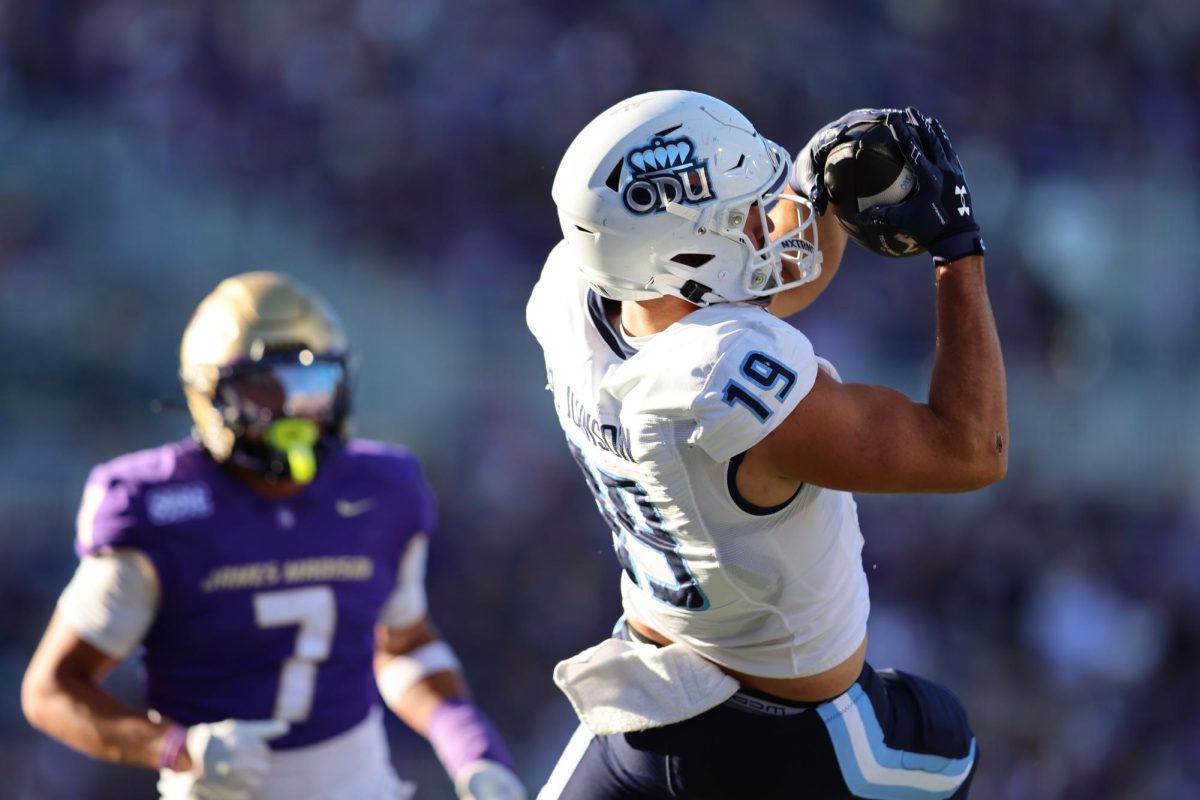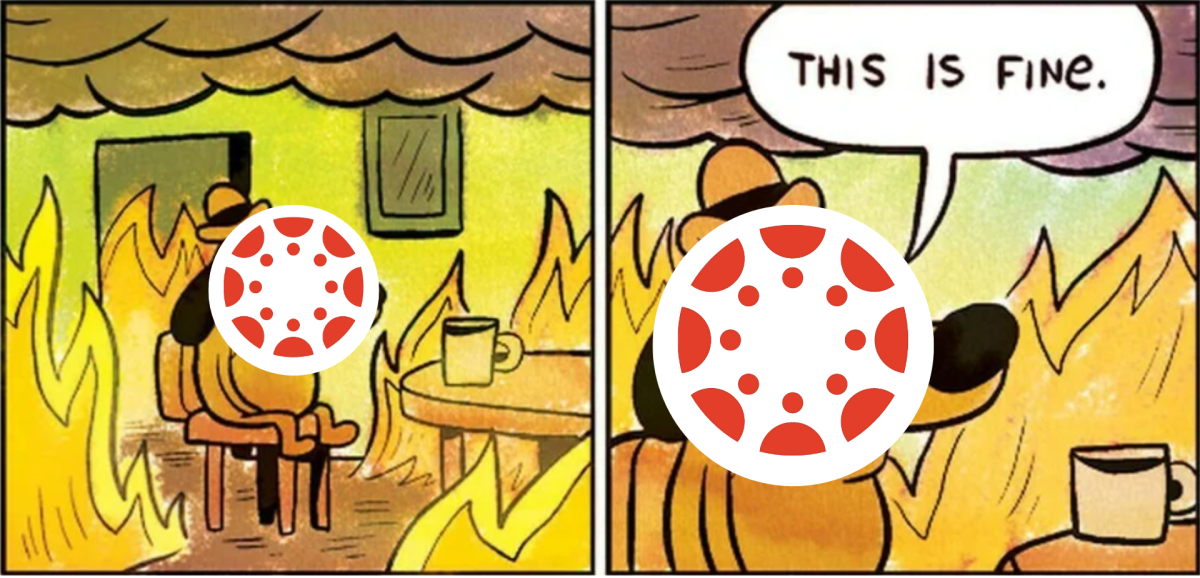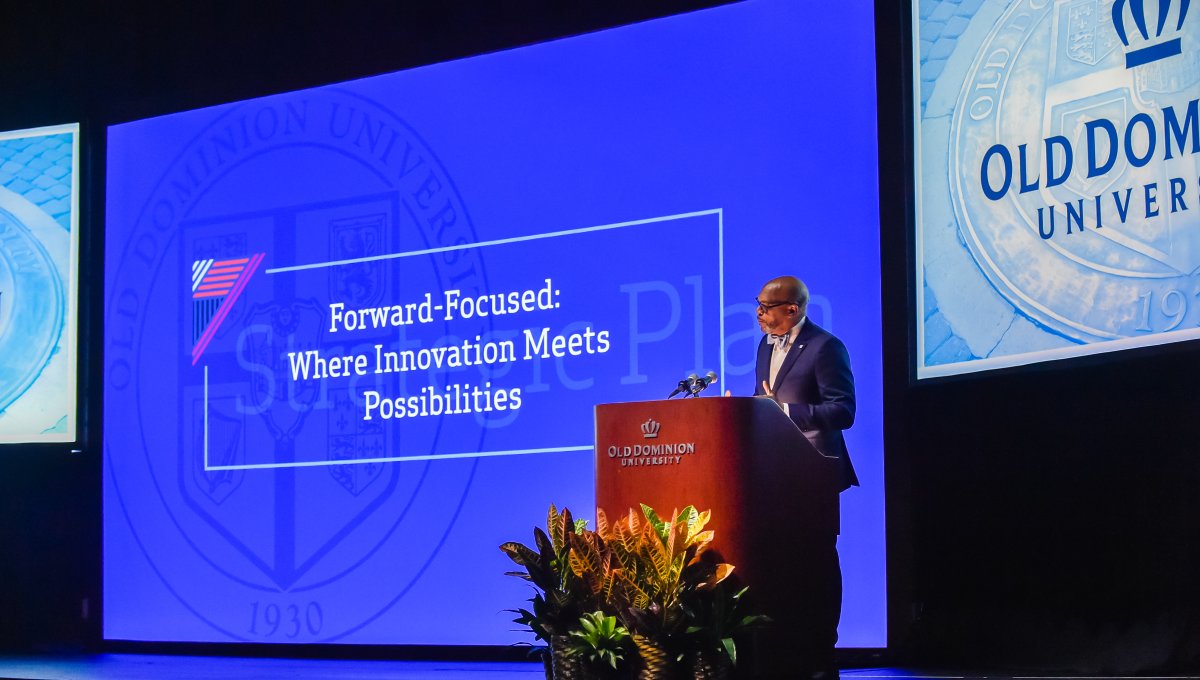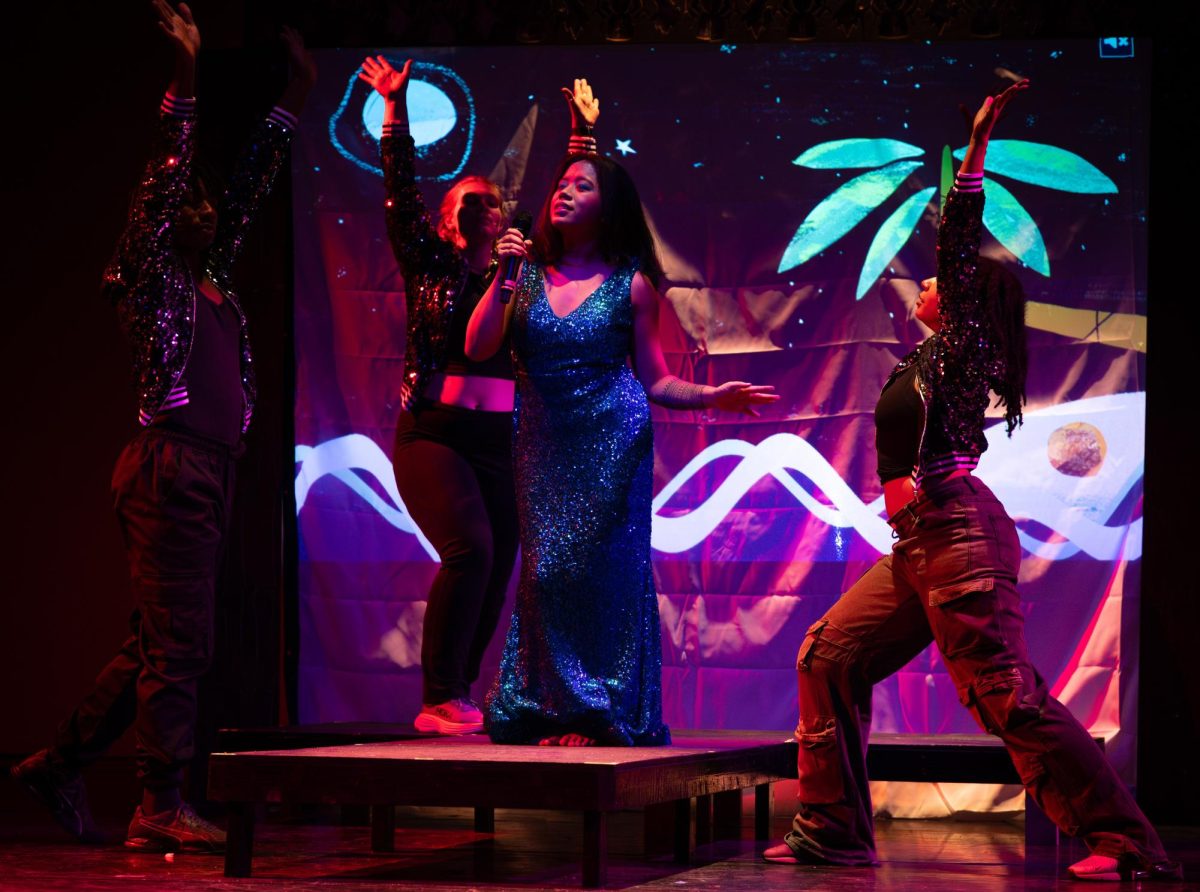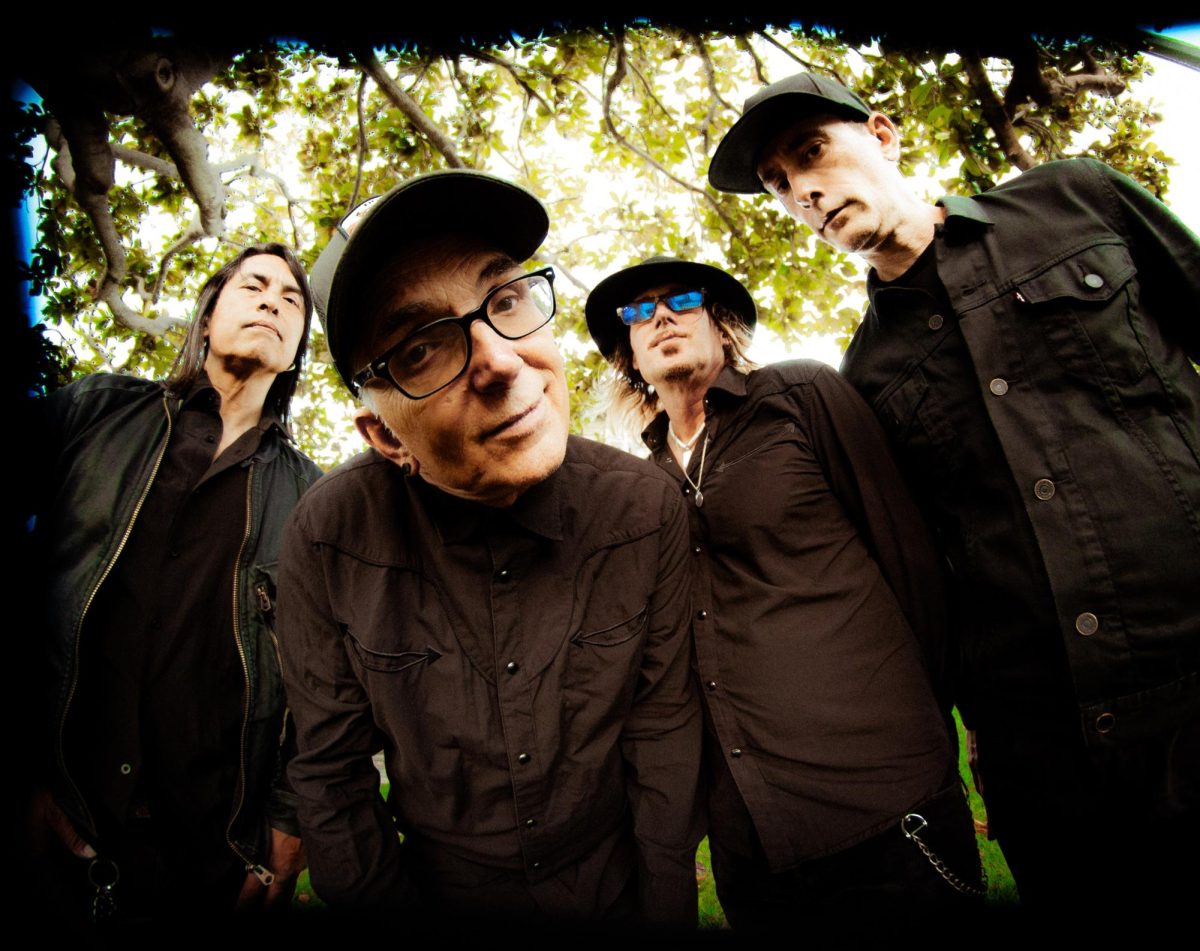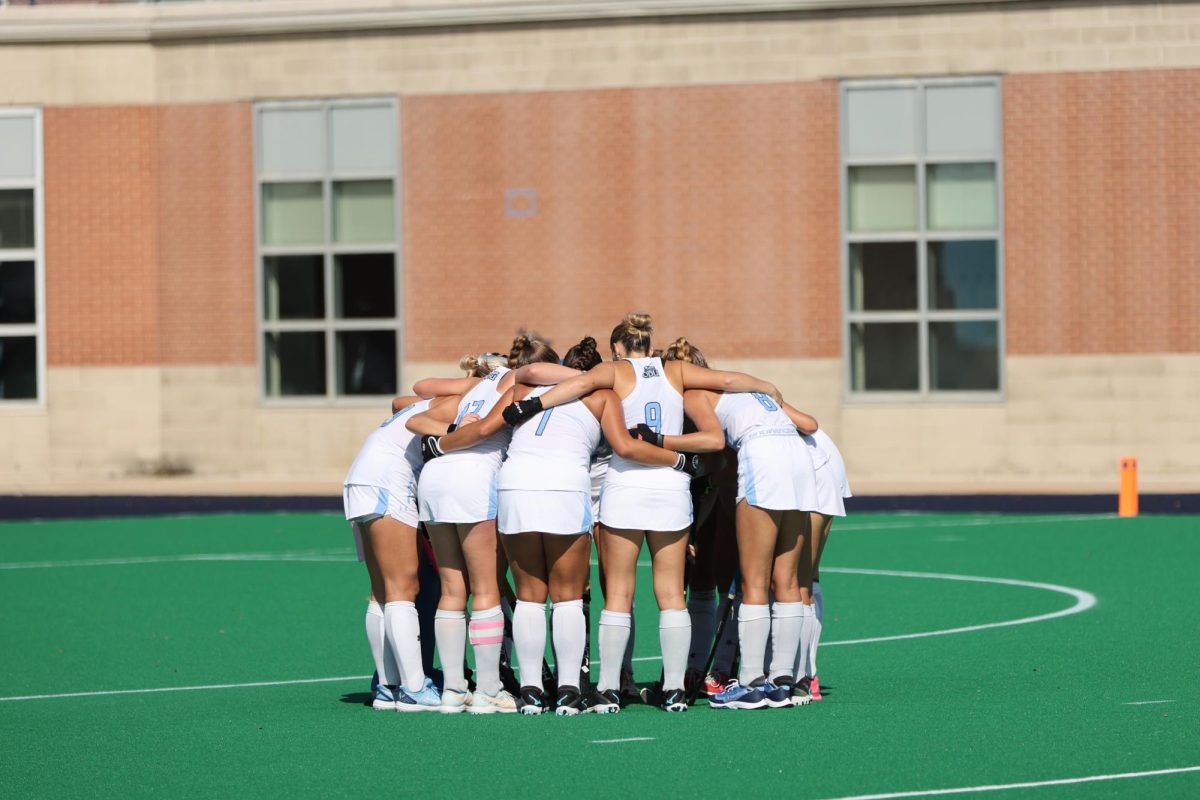The Question I’m Glad I Asked
November 15, 2022
This article first appeared in the fall 2022 Mace & Crown magazine issue.
At the beginning of my senior year, I began an internship with the Catholic Diocese of Richmond. I’m living in a community with a priest. Things are still in the air, and my feelings on the internship are likely to change. This position is the culmination of a year of deep vocational discernment and a lifetime of religious doubt. I could point to a million different places and say my journey started there, but I’ll start with one of the most pivotal.
It was the winter of 2019, my freshman year at ODU. I sat in a pew staring at the monstrance during my first Eucharistic adoration. I fidgeted and observed the others around me kneeling and having intimate moments with the Lord. My mind roiled with doubt as I repeated a petition to God: “Lord, If you’re really there, prove it.” I’d been confirmed the year prior, and despite being there to sponsor my friend becoming a fully initiated “adult” in the church, I had massive doubts.
At this point my friend and I saw our faith as obligatory and performative. It was a means to an end and not an end in itself. Ultimately, my friend decided to not get confirmed, and eventually left the Church, which I’m glad about as my overall disposition towards the faith at the time was not conducive to a positive, holy confirmation process. This was the first time I had prayed – I mean really, seriously prayed – since I was a young boy on the way home from Christmas Eve mass asking God to send a snowstorm for Christmas.
Is doubting and challenging God prayer? Absolutely.
I desperately wanted proof or a sign. I saw the wafer inside the monstrance as just some bread that everyone else thought was Jesus, though now I proudly believe this as well. While I’d never “left” my faith – as I’d been lectoring, or reading from the Bible during mass, for a while – I still had major doubts about the truth and validity of the church. Because of my lukewarm faith, I initially approached lectoring as an experience in public speaking; not for the edification of souls, but because I had pragmatic concerns! I continued in this way for a long while.
I hadn’t seriously tried to grapple with my faith or tackle my doubts until I started my time here at ODU and gained exposure to the world of philosophy and rhetoric. Classes in religion and philosophy gave me tools to begin to examine the questions I’d always had, but never knew how to truly express. They exposed me to problems I’d never considered, and the centuries of answers. My faith life prior to these courses had always been a tug-of-war between a zealous belief that Christianity, and Catholicism in particular, was the one true faith and that all non-believers, doubters, and apostates would burn in hell; and a cynical doubt that cast all who did believe as loons who believed to comfort themselves in the face of the harsh realities of death.
—
My life, like many others, has been a constant struggle to find meaning, purpose, stability, and peace. My faith has always been crucial to me throughout this daily struggle, despite my doubts. My struggles ranged from the intellectual, which were addressed by my classes and by better catechesis, to the purely spiritual, in that I never examined my faith and believed what I said I did. As a young boy, my faith gave me great consolation: God was all good and all love, nothing could go wrong. Then my mom was diagnosed with cancer, twice. How could an all-loving God, my God, who loves me personally, let this tragedy and this evil befall me and all those I love? Many doubts stemmed from this, but I came back to the faith in high school, or at least appeared to.
I used to be 460 pounds. Most people wouldn’t believe it, as I’m quite lean now. I’m also a distance runner, which is one of my greatest passions and genuine joys. I’d dissipated myself in a world of simple pleasures: fast food, video games, and a dire addiction to pornography. I’d adopted hedonism as my primary philosophy, with only a thin veneer of faith.
The COVID-19 pandemic was the perfect opportunity for me to change myself and emerge a radically different person. A variety of factors played into this change. Innumerable nights thinking about being healthy and fit and how proud everyone would be of me helped. I’ll never forget when it happened. I was lying in bed, on Facetime with one of my closest friends, when a feeling of absolute weightlessness flooded my body. I was at my heaviest, but I had never felt lighter. I realized I wasn’t happy anymore. The countless little pleasures didn’t bring me joy anymore. I felt a new leaf turning. I told my friend just that, and I never looked back.
These winds of change carried me into Lent with gusto. Amid all my doubts about my faith, the eucharist, and life in general, I felt sure of one thing: God was calling me to take responsibility for my health. I felt that I owed it to God, and my loved ones, who He put into my life, to try. My only stipulation for myself was that for the 40 days and nights of Lent I had to genuinely try—not just give up soda for a week and nothing else. Even if it was just 30 extra minutes of walking a day along with cutting back on sweets, I had to do it and be consistent. I figured I could make some serious progress and decide at the end of Lent if I wanted to continue down this path.
I started small by switching to diet sodas and getting a little bit less when I ordered fast food. Instead of my normal 8 double cheeseburgers and a large pop refilled multiple times for lunch, I had diet coke and only 4 or 5 burgers. Slowly, I took away more and more from my gargantuan portions and terrible food choices. I took up walking daily around my neighborhood. I couldn’t go far or for long at first, but my focus was consistency. I deepened my prayer life through my view that the actions I was taking for my health freed me to do the work of God, whatever that work may be, and to love Him more fully.
While I made these changes in my life, the world changed as well. COVID-19 hit the United States. Spring break was extended a week. The governor declared a state of emergency. Everyone was in lockdown. The world froze, but I kept walking and progressed dietarily, physically, and spiritually.
I felt that to overcome my attachments to food and physical pleasure I needed the strength of the angels. I began to pray the Chaplet of Saint Michael, a devotion to the angels invoking their protection and guidance. I felt drawn to this specific chaplet because it’s said that those who pray it daily are immune to temptation through the intercession of the nine angelic choirs. I prayed the chaplet throughout the summer of 2020, and I slimmed down a staggering amount. As I deepened my spiritual commitments, my logical barriers to the faith melted. I felt more unity with the Catholic Church. I dove into the Catechism and the great authors of the Church, namely Augustine of Hippo. I found his Confessions to be soothing: if he could be such a great sinner and yet also a saint, so could I.
I kept pushing forward on all these fronts: losing weight, becoming healthier, and growing spiritually. As my prayer life deepened, I felt not only my faith, but my entire person truly coming to life. Lectoring was more than just a public speaking exhibition; it was a gift. I was giving back to God and His people. I felt deep in my soul a call to give more. I’ve always felt this call to give back to the world. I was beginning to consider what work God was freeing me up for, and where to direct my newfound energies for His kingdom, to spread and live the Gospel most authentically.
—
Eventually this manifested in what I believed to be a call to the priesthood. As I read from the Lives of The Saints and other spiritual works, I felt that I too could be a priest and fulfill the role of the good shepherd for the people of God. Last fall, after ending my first serious adult relationship and hearing the message from several of my professors to do the craziest thing I could think of– to seek out more from life because youth and opportunity are tragically fleeting things, I did just that. I decided that the craziest thing, the thing I’d long wanted, but been talked out of many times, was to pursue this vocation.
I contacted the office of vocations for the Diocese of Richmond. The vicar for vocations and I exchanged emails and set a date to meet. He said something to me that day which has only recently returned to my mind: there’s a major difference between administering the sacraments and receiving the sacraments. I realize now that I failed to see this distinction.
However, this comes after about a year of very serious discernment. Throughout the last year I continued to deepen spiritually and progress towards this pinnacle of the priesthood. I began spiritual direction, and while the Chaplet fell to the wayside, prayer and faith were the lights which I let guide my feet. In the spring of this year, I felt sure that seminary was the next step for me. I met again with the vicar over the summer to discuss pursuing an internship with the diocese.
The internship has many duties and responsibilities which have conflicted with those as a full-time ODU student. As a result, I haven’t been able to fulfill all of them. Thankfully the priest I live with and the great community around me are understanding of my dual responsibilities. The primary duty of the internship is living “in community” with a priest. I commute to ODU, just like before, but I don’t return to my old home and family—I return to the rectory and my priest.
The familiar face of Bishop Knestout in a frame on the right-hand wall greets me as I walk through the door each night after attending classes and trudging through the HRBT. I usually make my dinner in silence. Sadly, my priest and I don’t typically see one another; he has so many duties within the parish that our paths often don’t cross except for in the earliest parts of the morning and fleetingly in the evening. Often by the time we arrive at the rectory in the evening, we both would rather just retire to our respective rooms and work, or relax, rather than socialize.
Life in the community has been lonely. Most of my days are spent at school, and the few moments in the parish are often spent trying to catch my breath. I find some respite in daily mass on Tuesday and Thursday mornings, although I don’t return home, at least on Tuesdays, until around 9 p.m., which makes for a long day. Attending daily mass is one of the duties of the internship, and despite those masses filling up a prime space when I could be getting coursework done, I find them restorative. However, my general disposition and desire to perform my duties with excellence is compromised because of everything on my plate. Sadly, I can’t do all my duties, as an intern or as a student, with the same excellence I’m used to.
The struggles of being a full-time student and balancing prayer life, which is nowhere near as full as it was at the peak of COVID, have been remarkably difficult. I’ve struggled to maintain the depth of and fidelity to my prayer life this semester. A lot of these actions of prayer, which before I would’ve considered a freeing and essential part of my day, now feel like chores. It could be because I’m obligated under the internship to develop a daily holy hour, pray the liturgy of the hours, attend daily mass, etc. The requirement, or at least expectation, to complete these activities has hampered my ability to find serenity and joy in them. However, as I discover the rhythm of this semester and find time for the duties of the internship, these actions are freeing and edifying, although still difficult to incorporate. Unfortunately, I find myself rushing through them more frequently than I would like.
I realized after the first two days that, at least for now, seminary isn’t my path forward. My joy is in the reception and practice of the sacraments, not in their administration. This realization was accompanied with a weightlessness and a liberating joy. I still want to direct my energies within the Church and for God. My path just isn’t as a priest.
I’ve told my priest and the vicar for vocations about my realization and they both see no reason to terminate the internship. It’s supposed to give me an idea of where I’m called, and explore how it is that I’m to serve God. It’s a great gift to be allowed to search oneself so fully and freely and with such solid support.
My internship is nowhere near close to being over, and I may be judging too abruptly. Still, I realized almost immediately that the path I was on before–working towards being a high school English teacher, forming young minds of tomorrow– was the path for me. The “detour” of the priesthood has been amazing, difficult, terrifying, fun, exciting, and everything else besides, and I’m remarkably grateful that I chose to ask Jesus if He was really there in the Eucharist, and to prove it. I never expected Him to prove it to me in this way, but I’m so glad he did. I discovered that He truly is there and everywhere else. We only need to look around us to find Him.


